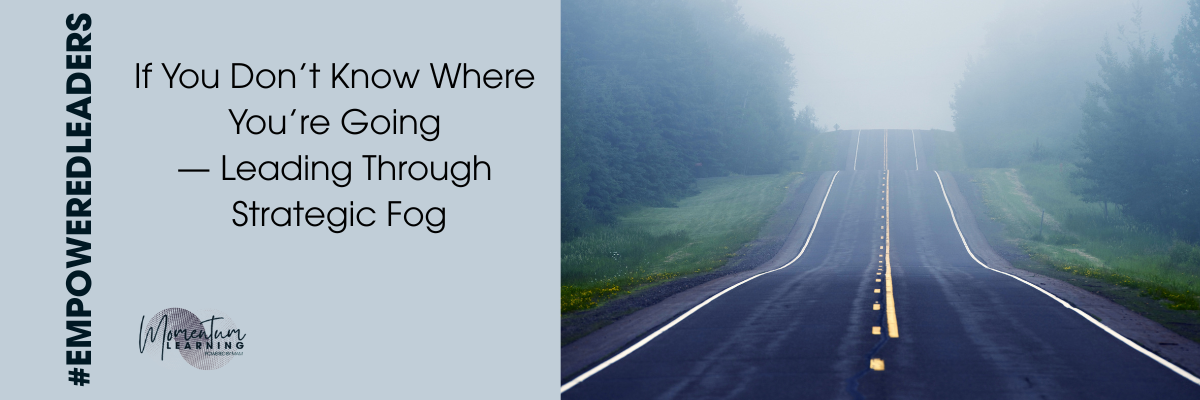If You Don’t Know Where You’re Going — Leading Through Strategic Fog
If You Don’t Know Where You’re Going — Leading Through Strategic Fog
In Alice in Wonderland, when Alice asks which road to take, the Cheshire Cat replies,
“That depends a good deal on where you want to get to.”
She doesn’t know. So the Cat responds:
“Then it doesn’t much matter which way you go.”
Whimsical? Yes. But also painfully relevant for anyone leading in today's ever-changing environment. Because let’s be honest — how often are we asked to provide certainty, optimism, and direction… when the road ahead is still being drawn?
You’re navigating budget constraints, reform cycles, and shifting expectations. You’re holding the line while the path keeps moving. And at the same time, you’re expected to keep people connected and hopeful.
But leadership in times like these isn’t about knowing it all. It’s about knowing what anchors you. What you can offer - even when clarity is in short supply.
Ron Heifetz, the voice behind Adaptive Leadership, reminds us that leadership during complexity isn’t about delivering answers - it’s about creating the conditions for learning and adaptation. It’s about helping people stay connected to purpose while walking through ambiguity together.
That aligns with Michael Fullan’s take on change leadership too. He speaks often about coherence being more important than control - that people don’t need a detailed map as much as they need a shared direction, a sense that “we’re in this together,” even if the route isn’t fixed.
Simon Breakspear adds to this by encouraging “agility with intention.” It’s not enough to be flexible - we need to be flexible on purpose. As leaders, we can support change best when we create adaptive structures, reflect often, and stay close to the core kaupapa — the values and purpose that guide us when the vision gets hazy.
And in the midst of all this, James Clear, author of Atomic Habits, offers a simple truth that brings it all home:
“You do not rise to the level of your goals. You fall to the level of your systems.”
Even when the big picture is fuzzy, small, intentional habits still matter. Weekly check-ins. Honest kōrero. Shared reflection. These rhythms help steady the waka. They build trust, traction, and resilience — not through grand gestures, but through everyday consistency.
So if you find yourself in strategic fog this week, here’s your invitation:
Show up.
Name what is known.
Ask good questions.
Stay grounded in your kaupapa.
And invite your team to walk alongside you, not wait for you to figure it all out first.
You’re not being asked to be perfect. You’re being asked to be present. And that’s enough.
Something to Ponder:
What’s one thing you can clarify this week — even if the rest is still forming?
Stay steady,
Mary-Anne

